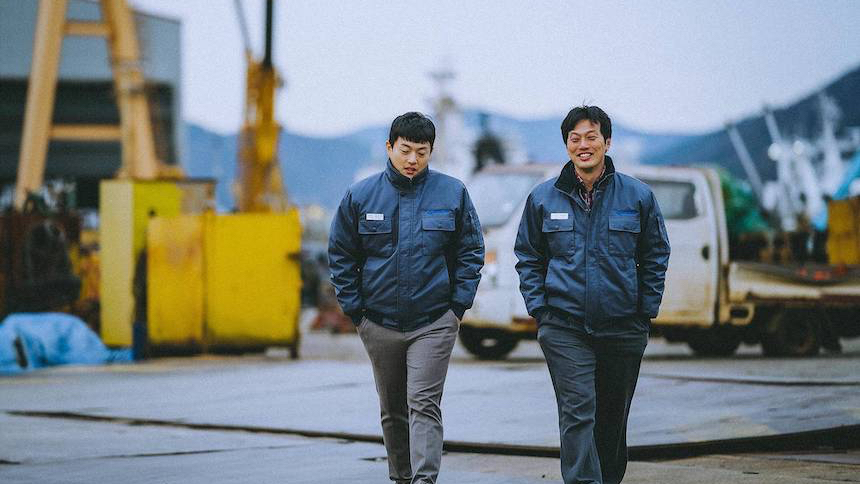Busan 2023 Review: WORK TO DO, Downsizing Drama Examines Moral Quagmire of Middle Management

Caught between professional duty and personal responsibility, a young man navigates through a maze of grey with a spinning moral compass in the compelling debut Work to Do from director Park Hong-jun.
Jun-hee is a diligent young man, now in his fourth year of employment at a large shipbuilding company in an industrial town in Korea. After securing a company loan for housing, he now lives in his very own home and his pregnant girlfriend is on the verge of moving in with him.
As the film begins, he has just been transferred to his company's human resources department, with a strong recommendation from his former department head. The HR workload is light and his colleagues are friendly, but not long after his transfer the department is tasked with spearheading a major restructure which will have devastating consequences on the lives of many.
Corporate restructuring is one of those necessary evils that exemplify the trickle down effect of power; the ones at the bottom are typically hit the hardest. When depicted in cinema, we normally experience downsizing from the perspective of those in danger of getting the boot.
Not unlike the recent workplace drama On the Verge of Insanity, though with a more rigorously realistic approach, Work to Do refocusses that perspective to middle management and the people charged with performing the workforce culling. The HR team at an industrial plant is a far cry from fine wine-sipping power brokers in gilded towers.
The job laid at their feet presents them with difficult choices. The 'work to do' involves drawing up a list of employees to cut that will minimize the impact on productivity. It also means dealing with the work unions.
Jun-hee turns out to be very good at this new job and takes pride in identifying efficient solutions to some of the department's problems, which quickly gets him in the good graces of his HR colleagues. However, as the work becomes more complicated and pressure from higher up forces his direct superiors to employ questionable methods in the process, his conscious begins to niggle away at him.
While already a grim scenario, Work to Do intimates that no matter what the resolution, things are not likely to get any better. The layoffs are a result of financial pressure but it's a pinch that is not only being felt by Jun-hee's company; Korea's whole shipbuilding industry is in terminal decline.
One of the major obstacles with the restructuring is trying to engineer it in a way so that older workers will step down while the company can hang on to rare and prized younger employees. Jun-hee himself is walking proof of this. Despite several years under his belt, he has still never had a junior report to him.
The workforce already has a wealth of grizzled protest veterans in its ranks. This isn't the company's first downsizing and the general weariness with which everyone embarks on this new one is marked with a defeated spirit.
Performances are uniformly strong and the steady pacing make Work to Do very approachable, despite its heavy subject. What's missing is a more compelling ending. The film winds down in a way that makes rational sense but lacks the punctuation to make it dramatically satisfying.







